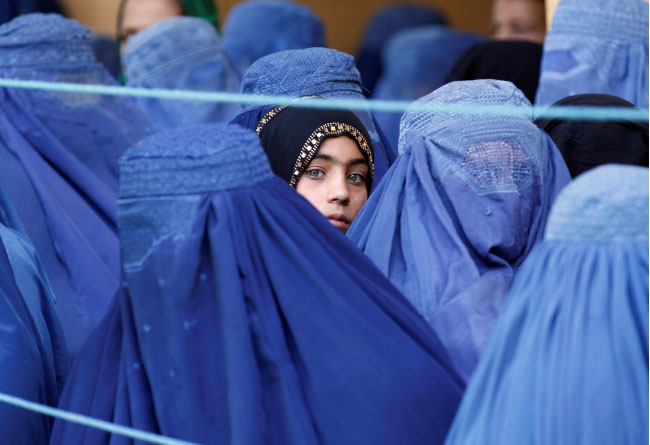Women are left at the mercy of social, political, and economic pain and sufferings around the globe. Their rights and freedoms are violated in some ways by many groups. Their social and cultural role is restricted, mainly in traditional societies, where cultural taboos hold strong sway. The view of women’s inferiority, cultural restriction, and misogynistic mindset inflict indescribable agony upon women and they are discriminated on the basis of their gender.
The rights and dignity of women are hotly debated in democratic societies and both men and women are deemed equal in all cases. Women are not supposed to be the victim of discrimination. In addition to saying that all human beings are born free and equal, the Universal Declaration of Human Rights (UDHR) states in article 2, “Everyone is entitled to all the rights and freedoms set forth in this Declaration, without distinction of any kind, such as race, color, sex, language, religion, political or other opinion, national or social origin, property, birth or other status….” Many states have signed the UDHR and are committed to observe it. However, the cycle of discrimination and violence against women does not stop and they continue suffering.
Besides bearing discrimination and violence at home and in public places, women have no peace of mind in social media, either. For example, they are blackmailed and receive threatening messages and insulting videos. According to research by Amnesty International surveying more than 4,000 women, more than one in five women have experienced online harassment or abuse. The vast majority of this harassment happens on social media sites. Almost half of the victims said the abuse or harassment was sexist or misogynistic in nature, and a quarter had received physical or sexual threats. The poll showed that a majority of the harassment, almost 60 percent, was racist, sexist, homophobic or transphobic in nature.
Azmina Dhrodia, Amnesty’s researcher on technology and human rights, as cited as saying, “The internet can be a frightening and toxic place for women. It’s no secret that misogyny and abuse are thriving on social media platforms, but this poll shows just how damaging the consequences of online abuse are for the women who are targeted.”
Of those who had been victims of harassment, 41 percent felt less secure in their daily lives because of the abuse they had experienced, and one in four feared for the safety of their families. A vast majority of women also said they were apprehensive about using the internet after being targeted. Besides sexist, racist or homophobic abuse, 17 percent of the victims said they had identifying personal details or private photos shared online, according to the survey.
Many Afghan women do not use their real names in social media or never post their real photos for two reasons: First, using social media is not deemed appropriate for women by traditional customs and they will be considered brazen. Hence, they fear to be labelled by their neighbors or prevented by their families. Second, there are people who seek to have contact with them despite their reluctance, which is a flagrant violation of their freedom. In case of refusal, they will be threatened or inappropriate video or pictures will be post through their timeline which will degrade them. In such a case, they will be besmirched for the rest of their life among the people.
Worst of all, some militant parties who cherish a misogynistic mindset spread propaganda to trap women into taking part in “Jihad”. About months ago, Tehreek-e-Taliban Pakistan (TTP) came out with its women’s magazine titled Sunnat-i-Khaula attempting to appeal to Muslim women, offering first-person stories of a female doctor who gave it all up to travel to ‘Khorasan’, an interview with the wife of a commander, and even a supposedly inspirational portrait of a child soldier.
“The objective was simple: brand extremism as heroic, joining up as a duty of faith possible for all sorts of women; they could go themselves, or send their husband and even their baby sons.”
The self-styled Islamic State of Iraq and the Levant (ISIL) was also in the game of recruiting women. A magazine issued by ISIL in Arabic and titled ‘Wajib un-Nisa’ called women to join war and deemed it a duty for them. On social media, the group’s female recruits, particularly those from the West, took on the task of wheedling others to join, talking about how lovely life was in daula (the ISIL-controlled ‘state’) and what a grand time was to be had in living in such a pure place.
Women, who are deemed inferior to men and simply created for satiating the desire of men, according to many militant fighters and dogmatic beliefs, in one time, are called duty-bound to carry out “Jihad” alongside men when the militants are losing. Even in battlefields, women had to satiate men’s desire – those women recruited by ISIL were supposed to do so in Iraq and Syria. On the other hand, they were raped and killed on the grounds of their race and religion, this was the case with many Yazidi women in Iraq. Hence, women are highly prone to social and political ills.
Home » Opinion » Women – Prone to Social and Political Ills
Women – Prone to Social and Political Ills
| Hujjatullah Zia

